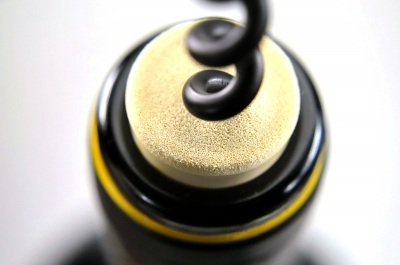Opinions on whether you should decant fine wine run the gamut from never to always. As is typical with this kind of charged subject the answer will depend on your understanding of what decanting does for and to fine wine. Once you understand the reasoning and the process you can make intelligent decisions concerning the wines in your cellar.
Reasons For Decanting Wine

The most common and obvious reason for decanting wine is to reduce or eliminate the sediment that develops as some vintages age. Occasionally a younger wine also exhibits sediment if the winemaker chose not to filter the wine for taste or coloration reasons.
Sediment is a problem for both flavor and mouth feel of any wine, young or more mature. The solids in the bottle will impart a bitter, astringent taste to the wine, a real distraction from what might otherwise have been a delightful or significant taste experience. It is also unpleasant to have the bits of grape or lees, which are yeast particles, in a mouthful of wine.
- Smoothing and Mellowing the Wine
While the need to avoid or at least minimize sediment rarely encounters argument, the other reason offered for the decanting of fine wines is to add oxygen to open up the flavors of the wine. Often suggested for younger wines that are prone to tasting sour or tight in at least the first glass, some wine experts feel that allowing the wine to experience the gentle agitation of decanting results in a more nuanced, complete wine taste.
You will recognize this second rationale as the common explanation that the wine needs to breathe. Particularly with wines bottled with screw caps, including both high end and low end wines, the theory is the wine needs to mix with oxygen to remove the unpleasant smells that affect your enjoyment of the wine. The components that have these odors are called thiols, and oxygenation through decanting causes them to create different compounds humans are not usually able to detect by nose.
The Dilemma
If you are contemplating drinking a young wine, decanting will probably not have a deleterious effect, although some aficionados frown at the practice with certain wines like Beaujolais. In fact, if the decanting does allow the flavors to develop before the rim is put to the lips many would be all for the practices.
Some actually advocate decanting and holding a younger wine in the decanter for an hour or more before serving. This will obviously be a matter of taste and can be an enjoyable experiment for you as you compare the nose and taste of your younger wines as they mature in the decanter.
The situation becomes complicated when considering older, more fragile fine wines. Although these highly anticipated vintages may benefit from decanting with regard to sediment there is more than a little concern that decanting can damage the wine. A real worry is that the burst of fruit many venerable wines offers in the first sip may be completely dissipated during decanting.
Consequently if it appears that sediment will be an issue with an older vintage decanting should be done, if at all, with an immediate pour into a glass to be enjoyed. You can also use one of the suggestions below to minimize the harm decanting may do to a delicate older bottle.
Some Compromises
If you are fearful that the subtle nuances of an older bottle will be forever lost if overly agitated, take the following steps.
- Stand the bottle upright for a couple days before pouring. The sediment will migrate to the bottom of the bottle.
- Carefully uncork to minimize debris.
- Place a filter, specially made for wine or even a clean tea strainer, over the rim of the glass or glasses.
- Gently and slowly pour the wine through the filter.
Another option is to decant a small portion of a bottle, recork the remainder, and taste the decanted wine to check for nose and flavor. If the decanting was successful, the remainder can be treated in the same way. On the other hand, if the wine seems to have suffered, the rest of the bottle can be used without decanting.
Final Words
If possible check out the process ahead of the time you will be serving the wine to family or guests. Experiment and follow your own instincts. Remember you are the final judge of how your fine wines taste best to you. You are your most important wine expert.
And remember also, that however you handle your wine when it's time to drink it, if it hasn't been stored correctly, it will hardly be worth the bother of trying to bring out its best by decanting. So if you want to find out about state of the art wine storage, why not check out our Wine Guardian system on
https://vintagecellars.com/cooling-systems/wine-guardian.html?


